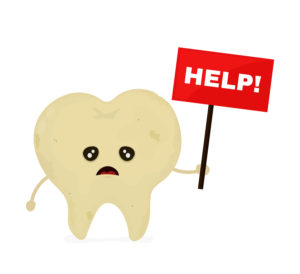 Did you know that plaque and tartar are some of the most common threats to your oral health? These substances contribute to the development of conditions like tooth decay and periodontal (gum) disease. Fortunately, there is good news. You can control plaque and tartar with proper oral hygiene and by scheduling routine checkups and cleanings with our dentist.
Did you know that plaque and tartar are some of the most common threats to your oral health? These substances contribute to the development of conditions like tooth decay and periodontal (gum) disease. Fortunately, there is good news. You can control plaque and tartar with proper oral hygiene and by scheduling routine checkups and cleanings with our dentist.
What is plaque and how does it affect oral health?
Plaque is a sticky, bacteria-laden substance that covers your teeth. It forms when bacteria, saliva, and food molecules mix. In as little as four hours, plaque can begin to form on teeth and at the gum line. This is why brushing and flossing is so important as it removes this substance before it hardens into tartar.
The content of plaque also causes gingival inflammation, which can increase your odds of developing gum disease. Since plaque weakens teeth, it also contributes to the development of dental caries. Meticulous and gentle brushing of the gums and teeth is the best way to control plaque. We recommend brushing your teeth thoroughly about 30 minutes after each meal.
Why is tartar dangerous to my teeth and gums?
When plaque is not removed by brushing and flossing, it will harden into tartar within a couple of days. Unlike plaque, tartar cannot be removed with flossing and brushing. Removing this substance requires professional instruments that dental hygienists use.
Tartar is a major contributor to advanced periodontal disease. As it builds up along the gum line, it inflames the gingiva and causes it to recede. Gum recession exposes the roots of teeth to oral bacteria and acid. The roots of our teeth do not have an enamel coating to protect them from acid and bacteria, which leaves them especially vulnerable.
Practicing proper brushing and flossing is a powerful method for protecting your oral health. If you have questions about hygiene tools and techniques, be sure to bring them up with our dentist at your next appointment.
